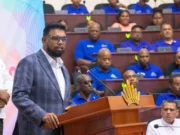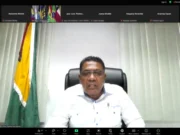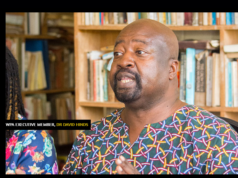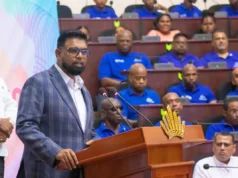If Guyana does not take the time to define what businesses can qualify to benefit from its local content framework, then “it can be setting itself up for future complications.”
This view was proffered today by Local Content Expert, Rene Tissot. The Consultant told Guyana Standard that there are some fundamental questions which the framers of Guyana’s policy must consider.
Tissot said that Guyana needs to decide, “Is it enough to have a certain percentage of the management of the business owned by nationals? Must the company be registered in the country or not? What percentage of the workforce must be local?”
The Brazilian expert said that some countries are very explicit about these mandates because it causes complications later on. “If you don’t get it right, then every other company will be coming into your country, setting up shop and that will be called local content. Guyana must avoid making the mistakes of others.”
To encourage local content and to ensure that “100 percent native businesses” benefit from the oil industry, Tissot said that countries often create requirements for extraction companies. Tissot said that these include quotas, training programme requirements, incentives for small business development and processing of derivative products.
The Local Content Expert told Guyana Standard that quotas, embedded in laws, policies, regulations or contracts, are provisions to require companies to award a certain percentage of hires, contracts or equity ownership to local companies or professionals.
With respect to training program requirements or incentives, the Brazilian consultant said that these are aimed at requiring or encouraging foreign companies to build the skills of the domestic workforce.
Tissot sought to make it clear, “I am not dictating but I think that this is necessary so that even in the employment stage, you have the capacity building. Employing a huge workforce of locals does not mean that you are building capacity. You are bloating your numbers of course but let’s get them to train. Ghana, Chad, Papua New Guinea, they had bad experiences with this.”
Tissot said that public education initiatives, wherein the state opens training centers, establishes programs or organizes overseas scholarships to build a cadre of expertise in sectors with strategic links to oil and gas, is a most efficient tool.
The Oil and Gas Consultant said, too, that incentives for small business development would include fostering better access to credit for small business owners or opening business incubation centers.
Once found to be economically feasible, Tissot noted that processing and production of derivative products, is an effective provision that is placed into contracts or policies. He said that this deals with refining crude oil or smelting minerals, which can capture significant economic benefits if done domestically.
Tissot said he finds it disappointing that none of the aforementioned provisions are in Guyana’s draft policy. He warned that the necessary changes must be made now.











